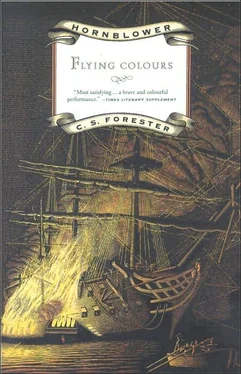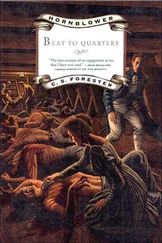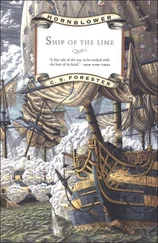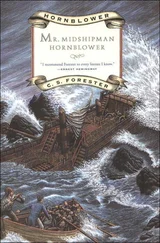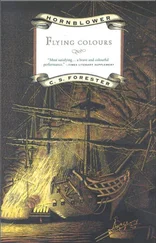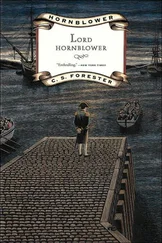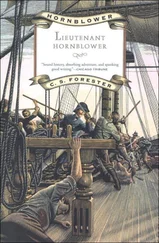Cecil Forester - Flying Colours
Здесь есть возможность читать онлайн «Cecil Forester - Flying Colours» весь текст электронной книги совершенно бесплатно (целиком полную версию без сокращений). В некоторых случаях можно слушать аудио, скачать через торрент в формате fb2 и присутствует краткое содержание. Год выпуска: 1989, ISBN: 1989, Издательство: Back Bay Books, Жанр: Исторические приключения, Путешествия и география, Морские приключения, на английском языке. Описание произведения, (предисловие) а так же отзывы посетителей доступны на портале библиотеки ЛибКат.
- Название:Flying Colours
- Автор:
- Издательство:Back Bay Books
- Жанр:
- Год:1989
- ISBN:0316289396
- Рейтинг книги:5 / 5. Голосов: 1
-
Избранное:Добавить в избранное
- Отзывы:
-
Ваша оценка:
- 100
- 1
- 2
- 3
- 4
- 5
Flying Colours: краткое содержание, описание и аннотация
Предлагаем к чтению аннотацию, описание, краткое содержание или предисловие (зависит от того, что написал сам автор книги «Flying Colours»). Если вы не нашли необходимую информацию о книге — напишите в комментариях, мы постараемся отыскать её.
Flying Colours — читать онлайн бесплатно полную книгу (весь текст) целиком
Ниже представлен текст книги, разбитый по страницам. Система сохранения места последней прочитанной страницы, позволяет с удобством читать онлайн бесплатно книгу «Flying Colours», без необходимости каждый раз заново искать на чём Вы остановились. Поставьте закладку, и сможете в любой момент перейти на страницу, на которой закончили чтение.
Интервал:
Закладка:
He sponged out the gun and reloaded it, called the pilot to him with an abrupt gesture, and ran the gun out again. It was necessary, he realized, to get acquainted with the weapon if he wanted to do any fancy shooting with it, so that he made no alteration in elevation, endeavoured to lay the gun exactly as before, and jerked the lanyard at as nearly the same instant of the roll as possible. This time it appeared that the elevation was correct, for the shot pitched well up to the boat, but it was out to the right again, fifty yards off at least. It seemed likely that the gun, therefore, had a tendency to throw to the right. He trained the gun round a trifle to the left, and, still without altering the elevation, fired again. Too far to the left, and two hundred yards short again.
Hornblower told himself that a variation of two hundred yards in the fall of shot from a six-pounder at full elevation was only to be expected, and he knew it to be true, but that was cold comfort to him. The powder varied from charge to charge, the shot were never truly round, quite apart from the variations in atmospheric conditions and in the temperature of the gun. He set his teeth, aimed and fired again. Short, and a trifle to the left. It was maddening.
“Breakfast, sir,” said Brown at his elbow. Hornblower turned abruptly, and there was Brown with a tray, bearing a basin of biscuit, a bottle of wine, a jug of water, a pewter mug; the sight made Hornblower realize that he was intensely hungry and thirsty.
“What about you?” asked Hornblower. “We’re all right, sir,” said Brown.
The galley slaves were squatting on the deck wolfing bread and drinking water; so was Bush, over by the tiller. Hornblower discovered that his tongue and the roof of his mouth were dry as leather—his hands shook as he mixed water with wine and gulped it down. Beside the cabin skylight lay the four men who had been left in bonds in the cabin. Their hands were free now, although their feet were still bound. The sergeant and one of the seamen were noticeably pale.
“I took the liberty of bringing ‘em up, sir,” said Brown. “Those two was pretty nigh dead, ‘cause o’ their gags, sir. But they’ll be all right soon, I fancy, sir.”
It had been thoughtless cruelty to leave them bound, thought Hornblower. But going back in his mind through the events of the night he could not think of any time until now when any attention could have been spared for them. In war there was always plenty of cruelty.
“These beggars,” said Brown, indicating the galley slaves, “wanted to throw the sojer overboard when they saw ‘im, sir.”
He grinned widely, as though that were very amusing. The remark opened a long vista of thought, regarding the miseries of the life of a galley slave and the brutalities of their guards.
“Yes,” said Hornblower, gulping down a morsel of biscuit and drinking again. “You had better set ‘em all to work at the sweeps.”
“Aye aye, sir. I had the same idea, beggin’ your pardon, sir. We can have two watches with all these men.”
“Arrange it as you like,” said Hornblower, turning back to the gun.
The nearest boat was appreciably nearer now; Hornblower judged it advisable to make a small reduction in the elevation, and this time the shot pitched close to the boat, almost among the oars on one side, apparently.
“Beautiful, sir!” said Bush beside the tiller.
Hornblower’s skin was prickling with sweat and powder smoke. He took off his gold laced coat, suddenly conscious of the heavy weight of the pistols in the side pockets; he proffered them to Bush, but the latter shook his head and grinned, pointing to the bell-mouthed blunderbuss on the deck beside him. That would be a far more efficacious weapon if there was trouble with their motley crew. For an exasperated moment Hornblower wondered what to do with the pistols, and finally laid them handy in the scuppers before sponging out and reloading the gun. The next shot was a close one, too—apparently the small reduction of range had had a profound effect on the accuracy of the gun. Hornblower saw the shot pitch close to the bows of the boat; it would be a matter of pure chance at that range if he scored an actual hit, for no gun could be expected to be accurate to fifty yards.
“Sweeps are ready, sir,” said Brown.
“Very good. Mr. Bush, kindly lay a course so that I can keep that boat under fire.”
Brown was a pillar of strength. He had had rigged only the three foremost sweeps on each side, setting six men to work on them. The others were herded together forward, ready to relieve the men at work when they were tired—six sweeps would only just give the big cutter steerage way, but continuous slow progress was preferable to an alternation of movement and passivity. What arguments he had used to persuade the four Frenchmen who were not galley slaves to work at the sweeps Hornblower judged it best not to inquire—it was sufficient that they were there, their feet hobbled, straining away at the sweeps while Brown gave them the time, his knotted rope’s end dangling from his fist.
The cutter began to creep through the blue water again, the rigging rattling at each tug on the sweeps. To make the chase as long as possible she should have turned her stern to her pursuers, instead of keeping them on her quarter. But Hornblower had decided that the chance of scoring a hit with the gun was worth the loss in distance—a decision of whose boldness he was painfully aware and which he had to justify. He bent over the gun and aimed carefully, and this time the shot flew wide again. Watching the splash from the rail Hornblower felt a surge of exasperation. For a moment he was tempted to hand the gun over to Bush, for him to try his hand, but he put the temptation aside. In the face of stark reality, without allowing false modesty to enter into the debate, he could rely on himself to lay a gun better than Bush could,
“Tirez!” he snapped at the pilot, and between them they ran the gun up again.
The pursuing boats, creeping black over the blue sea, had shown no sign so far of being dismayed by the bombardment to which they were being subjected. Their oars kept steadily at work, and they maintained resolutely a course which would cut the Witch of Endor’s a mile or so further on. They were big boats, all three of them, carrying at least a hundred and fifty men between them—only one of them need range alongside to do the business. Hornblower fired again and then again,doggedly, fighting down the bitter disappointment at each successive miss. The range was little over a thousand yards now, he judged—what he would call in an official report ‘long cannon shot.’ He hated those black boats creeping onward, immune, threatening his life and liberty, just as he hated this cranky gun which would not shoot the same two rounds running. The sweat was making his shirt stick to him, and the powder-grains were irritating his skin.
At the next shot there was no splash; Hornblower could see no sign of its fall anywhere. Then he saw the leading boat swing half round, and her oars stop moving.
“You’ve hit her, sir,” called Bush.
Next moment the boat straightened on her course again, her oars hard at work. That was disappointing—it had hardly been likely that a ship’s long boat could survive a direct hit from a six-pounder ball without injury to her fighting ability, but it was possible, all the same. Hornblower felt for the first time a sense of impending failure. If the hit he had scored with such difficulty was of no avail, what was the sense in continuing the struggle? Then, doggedly, he bent over the gun again, staring along the sights to allow for the small amount of right hand bias which the gun exhibited. Even as he looked he saw the leading boat cease rowing again. She wavered and then swung round, signalling wildly to the other boats. Hornblower trained the gun round upon her and fired again and missed, but he could see that she was perceptibly lower in the water. The other boats drew up alongside her, evidently to transfer her crew.
Читать дальшеИнтервал:
Закладка:
Похожие книги на «Flying Colours»
Представляем Вашему вниманию похожие книги на «Flying Colours» списком для выбора. Мы отобрали схожую по названию и смыслу литературу в надежде предоставить читателям больше вариантов отыскать новые, интересные, ещё непрочитанные произведения.
Обсуждение, отзывы о книге «Flying Colours» и просто собственные мнения читателей. Оставьте ваши комментарии, напишите, что Вы думаете о произведении, его смысле или главных героях. Укажите что конкретно понравилось, а что нет, и почему Вы так считаете.
